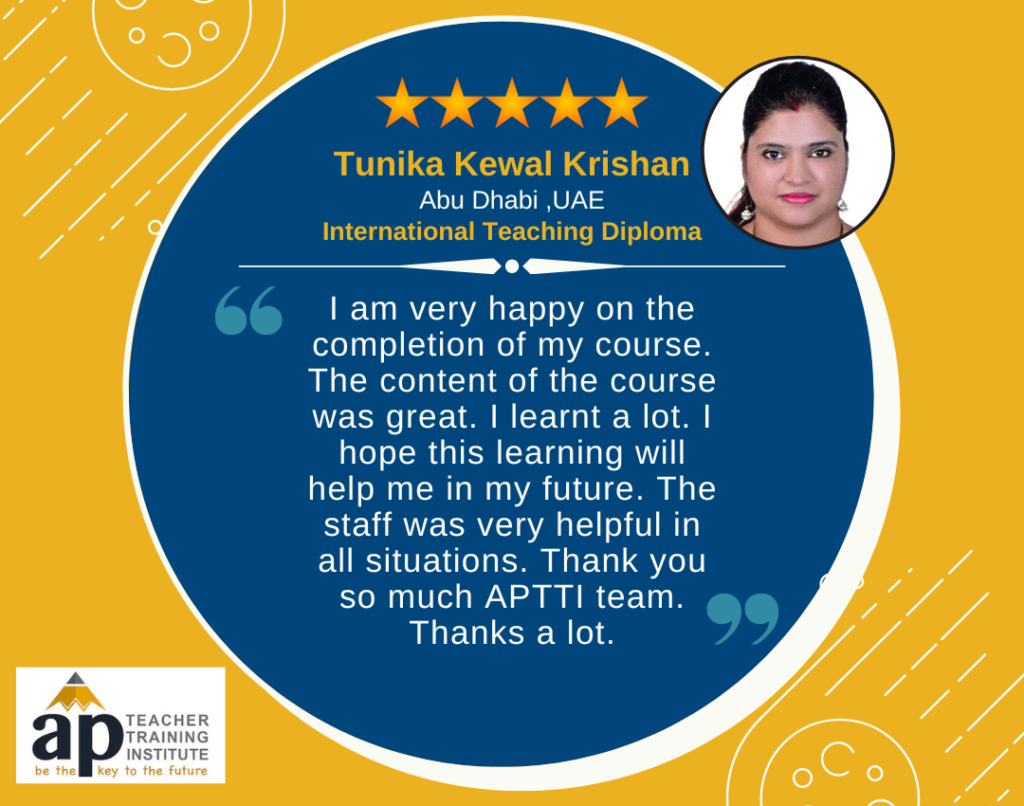How to Become an International Teacher in India: Step by Step Guide
In today’s interconnected world, the demand for highly skilled educators who can teach internationally is skyrocketing. Doing an international teaching diploma not only opens doors to global career opportunities but also allows you to experience diverse cultures, educational systems, and professional growth. Whether you’re a recent graduate, a passionate educator, or someone looking to expand your teaching horizon, this comprehensive guide will take you through every step needed to achieve your dream.
Teaching internationally is more than just delivering lessons—it’s about embracing cultural diversity, understanding global pedagogical methods, and developing skills that make you a valuable asset in any classroom. With the right preparation, certifications, and mindset, you can successfully transition from a local educator to an international teaching diploma
What Does an International Teacher Do?
An international teacher works in schools across the globe, often in international or bilingual institutions. Responsibilities may include:
- Designing and implementing lesson plans suitable for multicultural classrooms.
- Assessing and supporting students with diverse learning needs.
- Collaborating with fellow educators from various countries.
- Integrating global teaching standards and curriculum frameworks.
According to UNESCO, teachers who adopt global best practices positively impact student outcomes and foster inclusive education environments.

Step-by-Step Path to Becoming an International Teacher
Obtain Relevant Educational Qualifications
A bachelor’s degree in education or a subject-specific field is typically required. Degrees in Early Childhood Education, Secondary Education, or specialized subjects can make you highly competitive. Some schools prefer candidates with a master’s degree in education for senior positions.
Gain Teaching Experience
Practical teaching experience is crucial. Working in a classroom setting allows you to:
- Understand student dynamics.
- Practice lesson planning.
- Develop classroom management skills.
Many aspiring international teachers start by teaching in local schools before applying abroad.

Get Certified with International Teaching Credentials
Certifications enhance your credibility. Some widely recognized credentials include:
- TEFL (Teaching English as a Foreign Language)
- TESOL (Teaching English to Speakers of Other Languages)
- CELTA (Certificate in English Language Teaching to Adults)
These certifications can make a significant difference when applying to international schools.
Research International Schools and Teaching Opportunities
Identify schools that match your expertise and teaching philosophy. International schools often have specific requirements regarding qualifications, teaching experience, and certifications. You can explore openings on International School Services or other reputed platforms.

Prepare Your Application and Interview
A strong application includes:
- A professional CV highlighting international teaching experience.
- A personalized cover letter demonstrating cultural awareness.
- References from previous schools or colleagues.
Interviews for international positions often focus on teaching strategies, adaptability, and cultural competency.

Adapt to a New Cultural and Educational Environment
Moving abroad requires flexibility. Understanding local customs, educational policies, and classroom dynamics will help you succeed as an international teacher.
For a detailed roadmap, check our guide on How to Become an International Teacher in India: Step by Step Guide.

Essential Skills for an International Teacher
- Cultural Sensitivity – Being aware of cultural differences is key to creating an inclusive classroom.
- Communication Skills – Clear, adaptable communication ensures effective teaching for students from diverse backgrounds.
- Technology Integration – Familiarity with digital learning tools enhances teaching efficiency.
- Flexibility and Adaptability – International teaching often requires adapting to different curricula and teaching styles.
- Student-Centred Teaching – Prioritizing the needs of each student improves learning outcomes.
Benefits of Becoming an International Teacher
- Global Experience: Exposure to different cultures and educational practices.
- Career Advancement: Opportunities for leadership roles and specialized positions.
- Networking: Building connections with educators worldwide.
- Personal Growth: Developing adaptability, empathy, and cross-cultural skills.
FAQ on Becoming an International Teacher
Q1. What qualifications do I need to become an international teacher?
You generally need a bachelor’s degree in education or your subject area, teaching experience, and internationally recognized certifications such as TEFL, TESOL, or CELTA.
Q2. Can I become an international teacher without experience?
While experience is highly recommended, some programs provide pathways for recent graduates who hold strong educational qualifications and demonstrate teaching potential.
Q3. What is the average salary of an international teacher?
Salaries vary depending on school type, experience level, and region. According to the International School Review, average salaries can range from $30,000 to $70,000 annually.
Q4. Which subjects are in high demand internationally?
Subjects like STEM (Science, Technology, Engineering, and Mathematics), English Language, Early Childhood Education, and Special Education are highly sought after across international schools.
Q5. How do I apply for international teaching positions?
You can apply directly to schools or use specialized job portals such as International School Services. Ensure you have a well-prepared CV, a strong cover letter, and all relevant certifications to boost your chances of selection.
Call to Action (CTA):
Start your journey today! Explore our detailed step-by-step guide on How to Become an International Teacher in India: Step by Step Guide and take the first step toward a global teaching career.

